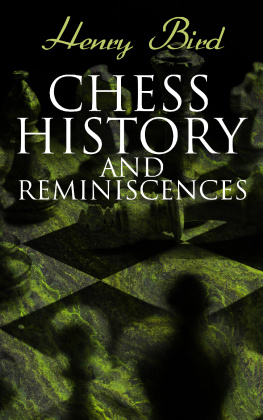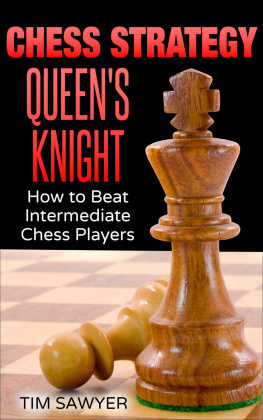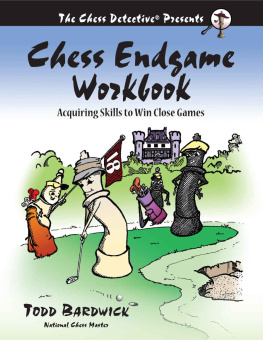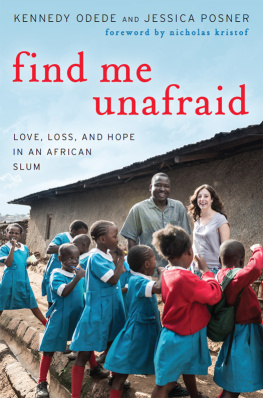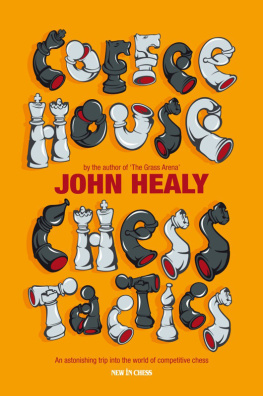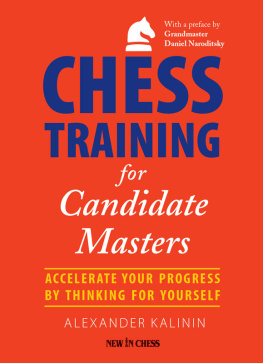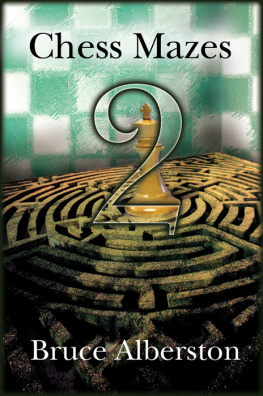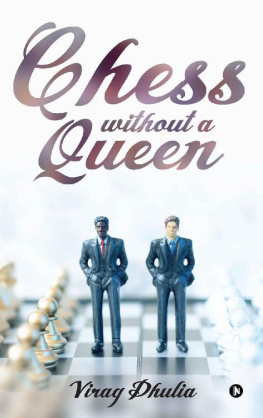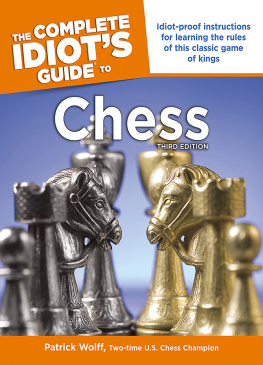Tim Crothers - The Queen of Katwe: A Story of Life, Chess and One Girl’s Rise from an African Slum
Here you can read online Tim Crothers - The Queen of Katwe: A Story of Life, Chess and One Girl’s Rise from an African Slum full text of the book (entire story) in english for free. Download pdf and epub, get meaning, cover and reviews about this ebook. year: 2012, publisher: Random House Canada, genre: Home and family. Description of the work, (preface) as well as reviews are available. Best literature library LitArk.com created for fans of good reading and offers a wide selection of genres:
Romance novel
Science fiction
Adventure
Detective
Science
History
Home and family
Prose
Art
Politics
Computer
Non-fiction
Religion
Business
Children
Humor
Choose a favorite category and find really read worthwhile books. Enjoy immersion in the world of imagination, feel the emotions of the characters or learn something new for yourself, make an fascinating discovery.

- Book:The Queen of Katwe: A Story of Life, Chess and One Girl’s Rise from an African Slum
- Author:
- Publisher:Random House Canada
- Genre:
- Year:2012
- Rating:4 / 5
- Favourites:Add to favourites
- Your mark:
- 80
- 1
- 2
- 3
- 4
- 5
The Queen of Katwe: A Story of Life, Chess and One Girl’s Rise from an African Slum: summary, description and annotation
We offer to read an annotation, description, summary or preface (depends on what the author of the book "The Queen of Katwe: A Story of Life, Chess and One Girl’s Rise from an African Slum" wrote himself). If you haven't found the necessary information about the book — write in the comments, we will try to find it.
Tim Crothers: author's other books
Who wrote The Queen of Katwe: A Story of Life, Chess and One Girl’s Rise from an African Slum? Find out the surname, the name of the author of the book and a list of all author's works by series.
The Queen of Katwe: A Story of Life, Chess and One Girl’s Rise from an African Slum — read online for free the complete book (whole text) full work
Below is the text of the book, divided by pages. System saving the place of the last page read, allows you to conveniently read the book "The Queen of Katwe: A Story of Life, Chess and One Girl’s Rise from an African Slum" online for free, without having to search again every time where you left off. Put a bookmark, and you can go to the page where you finished reading at any time.
Font size:
Interval:
Bookmark:
O ne of the first questions Im asked whenever I speak to anyone about the story of Phiona Mutesi is, How did you ever hear about her?
The gentleman who shared Phionas story with me, Troy Buder, learned of it by reading an article written by Rodney Suddith in a Sports Outreach newsletter. Buder skimmed through the story about three slum children winning a chess tournament in Sudan and then threw out the newsletter. Later that day, Buder retrieved it out of his office trash can, because he couldnt get the story out of his mind. Buder tells me that scenario occurred several more times until one day in March of 2010 when he attended an event where I was speaking. Buder approached me afterward to share Phionas extraordinary story, and I cant thank him enough for doing so.
I promptly wrote a proposal and sent it to ESPN, where it wound up in the hands of brilliant ESPN The Magazine editor J. B. Morris, who assigned me to travel to Uganda to meet Phiona in September of 2010. Within hours of my arrival at Agape Church in Katwe, I realized that Phionas story was much bigger than just a magazine article. I knew I needed to write this book.
The logistics of conducting interviews in a Ugandan slum are daunting, and frankly, The Queen of Katwe would not exist without the herculean efforts of Robert Katende. Not only did Katende spend countless hours sharing his personal story with me, but he also arranged and acted as my translator for almost every interview featured in this book. Since my most recent trip to Kampala in August of 2011, I have spoken with Katende regularly, asking for his help with everything from tournament results and historical research to coordinating a photo shoot. Thank you so much, Robert.
I also offer my heartfelt thanks to Harriet Nakku, her children, and all of the other Ugandans I had the pleasure to meet and talk to for this project. While their names are too numerous to include here, their courage is inspirational, and without them I would not have been able to tell this story. I also want to thank Patrick Wolff, an American chess Grandmaster who generously shared his expertise, and especially Russ Carr, Rodney Suddith, and Norm and Tricia Popp for their participation in this book, but more importantly, for everything they have done, and continue to do, to help the people of Uganda.
I am also deeply thankful to my editor at Scribner, Paul Whitlatch, for his exceptional instincts in helping me chisel this story from a boulder, as well as his Simon & Schuster colleagues Nan Graham, Susan Moldow, Roz Lippel, Lauren Lavelle, Brian Belfiglio, and Rex Bonomelli. I also owe an enormous debt of gratitude to my agent, Chris Parris-Lamb, whose initial unbridled excitement about the story of a Ugandan chess player encouraged me to pursue it.
Of course, thank you to my amazing wife, Dana, my awesome kids, Atticus and Sawyer, and the rest of my family for enduring two years of near-total preoccupation, when my mind was often in Katwe even if my body was at home.
During my most recent trip to Uganda, I will never forget sitting on the porch of the Pope Paul Memorial Hotel in Kampala each night with Rodney Suddith reveling in the remarkable story unfolding before me. At the end of each evening, we shared our favorite moment, what Suddith called the snapshot of the day, and I am so grateful to him for always finding a blessing where I had merely seen an interview.
Finally, my most essential thanks must go to Phiona Mutesi for trusting me to share her remarkable story in this book that someday soon, as her English continues to improve, I expect she will be able to read herself. Phionas narrative evolves daily. I am still reporting, still speaking regularly with Katende in preparation for a future postscript, because I know there are many more snapshots to come for Phiona, and I am eager to discover what happens next.
Also by Tim Crothers
The Man Watching
Hard Work
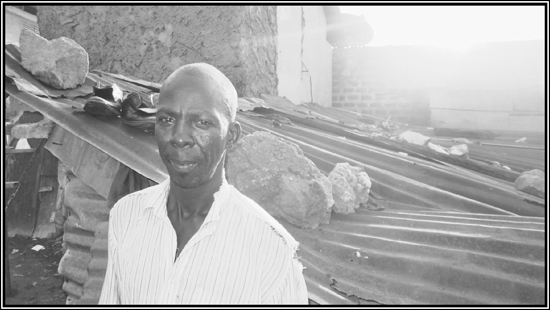
Hakim Ssewaya, who has lived 40 years in Katwe, stands in front of his shack. The structure fills with raw sewage during the slums frequent floods.
S he had no other choice. Nakito Jamidah had borne four children out of wedlock, including twins who died during childbirth, and she was no longer welcome at her parents home in the tiny Ugandan village of Namilyango. Jamidah was working as a cook at the same Lugala Primary School where shed dropped out a decade earlier at age eight, but she still could not afford to support her two surviving children, who lived with their grandparents. The father of Jamidahs children, who maintained relationships with several other women, was a former soldier and a violent drunk who often physically abused Jamidah until she finally left him. Then one day he came to the Lugala School in a drunken rage and kicked a saucepan full of scalding porridge over Jamidah, causing her severe burns. Jamidah feared for her life. She had to go.
So she came to the city.
When Jamidah arrived in Kampala, the sprawling, congested, dusty capital city, in 1971, Uganda was a mess and it was about to get a lot messier. The small East African nation, bordered by Kenya to the east, Sudan to the north, the Democratic Republic of Congo to the west and Tanzania, Rwanda, and Lake Victoria to the south, was nine years removed from its independence from Great Britain, and the former colony was falling victim to the same growing pains as nearly all of its fledgling African brethren. The colonial map of Africa had been drawn haphazardly, as if by children with crayons. Ugandas four primary tribes, who shared no culture, language, or custom, but had previously been bonded by a common colonial enemy, could no longer live in harmony inside the artificial borders. Uganda languished in a constant state of civil war.
The story of postcolonial Ugandan politics is that of a lieutenant who betrays his general. In the same year that Jamidah arrived in Kampala, Idi Amin, the commander of Ugandas army, deposed Ugandas president, Milton Obote, in a coup dtat. Amin would become the most malevolent dictator in African history.
A primary school dropout and former national boxing champion, Amin had joined the colonial armys Kings African Rifles in 1946 as an assistant cook before enlisting in the infantry and climbing through the ranks, proving his desire to triumph at any moral cost during brutal military campaigns in Kenya and Somalia. Immediately after the coup dtat, Amin promised free elections. They never occurred. One week after the coup, Amin declared himself his nations president and eventually bestowed upon himself the title His Excellency, President for Life, Field Marshal Al Hadji Doctor Idi Amin Dada, VC, DSO, MC, Conqueror of the British Empire in Africa in General and Uganda in Particular. Amin also famously referred to himself as the Lord of All the Beasts on the Earth and Fishes of the Sea.
Amin was known to order white Ugandans to carry him on a throne and kneel down before him as news photographers captured the scene for the outside world to see. He praised Hitlers treatment of the Jews, threatened war against Israel, insulted other world leaders, and thumbed his nose at Ugandas former colonial overseers by offering to become King of Scotland and lead the Scots to their rightful independence from England. He allied with Libyan dictator Muammar Qaddafi and courted arms from the Soviet Union. Amin ruled through terror, his regime responsible for killing its political and ethnic enemies, both real and imagined, in a horrific slaughter that took the lives of an estimated 500,000 Ugandans. Amin was even rumored to be a cannibal who consumed the organs of his victims.
Font size:
Interval:
Bookmark:
Similar books «The Queen of Katwe: A Story of Life, Chess and One Girl’s Rise from an African Slum»
Look at similar books to The Queen of Katwe: A Story of Life, Chess and One Girl’s Rise from an African Slum. We have selected literature similar in name and meaning in the hope of providing readers with more options to find new, interesting, not yet read works.
Discussion, reviews of the book The Queen of Katwe: A Story of Life, Chess and One Girl’s Rise from an African Slum and just readers' own opinions. Leave your comments, write what you think about the work, its meaning or the main characters. Specify what exactly you liked and what you didn't like, and why you think so.

